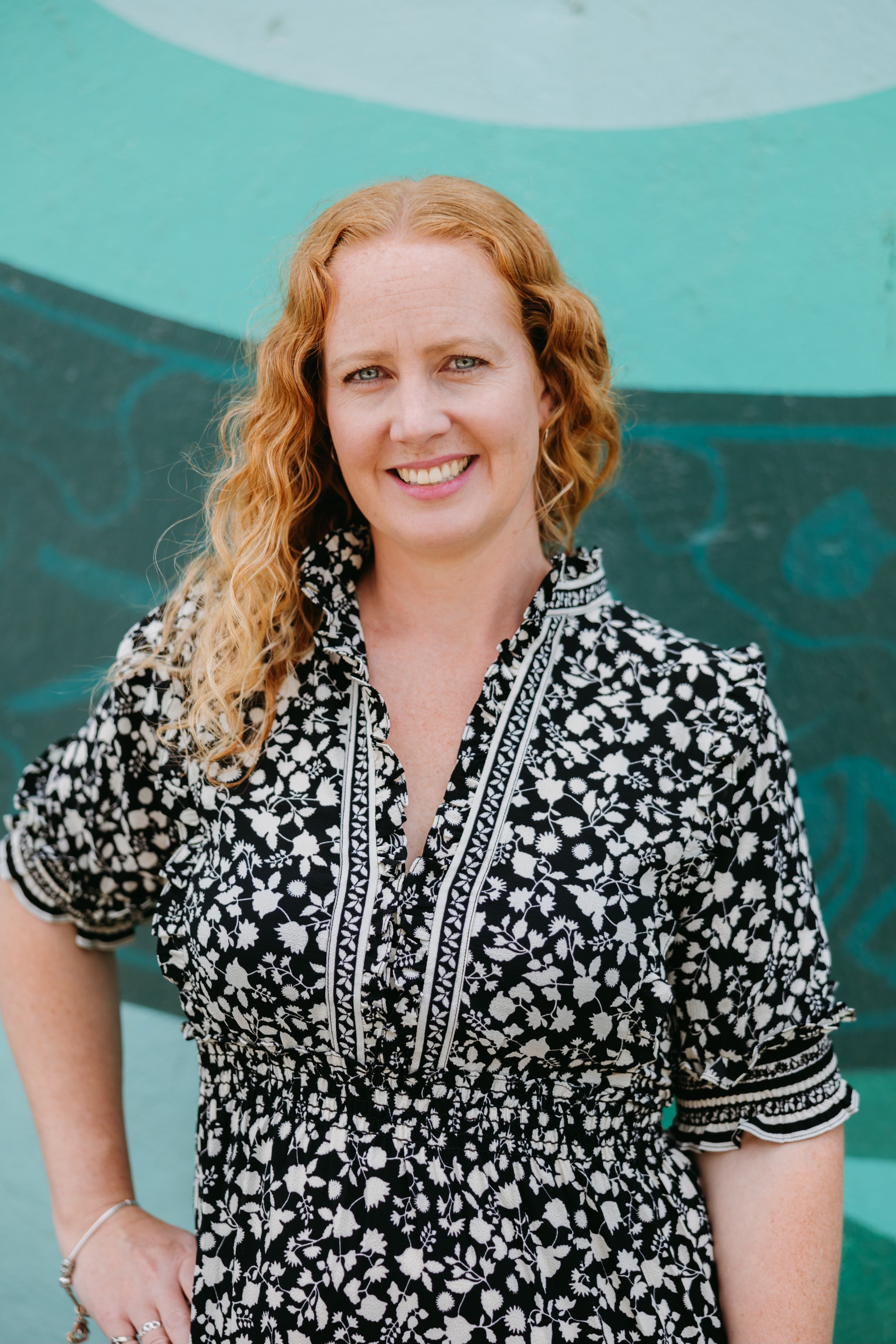Ms. Karen Dykstra and her husband own and operate three small businesses out of their home in Chilliwack, BC, Canada, located approximately 100 km east of Vancouver. Balancing the roles of mom, business owner, electrologist, teacher, and entrepreneur keeps her busy, but she’s one of those organized, high energy people maintains balance amid a lot of different activities. Read about how she decided to expand her work in the electrology industry and the opportunities for growth she sees in Canada's electrology industry.
How did you become interested in electrology?
When I was a girl, we would visit my Oma in her residence facility, and part of each visit was for my mom to pluck her chin hairs because she was very self-conscious about having them. I also noticed my mother being self-conscious about her chin hair, so when I first started getting my own “mommy chin hairs”, I decided to take care of it immediately. I found a wonderful electrologist named Kim Gerry in my neighborhood and thought, “This is so cool!” I’d been thinking about becoming a nurse after my youngest child went to school, but when I saw the demands of the nursing schedules, I realized that I wanted the flexibility to be in charge of my own schedule- I like to help out at school with hot lunches and going on field trips and being present at all of my kids’ birthday celebrations. Becoming an electrologist has allowed me to be the kind of mom I want to be!
I attended Swanson’s Canadian School of Electrolysis, and on the anniversary of my first electrology appointment, I opened my clinic in our home. This has been one of the best decisions we've made for our family, and one that we have not regretted.
After working as an electrologist for a few years, you expanded your business, adding retail distribution arm (A & E Beauty Supplies) and an electrology school (Swanson’s Canadian School of Electrolysis).
I’d been thinking about what might happen if I was injured or had a medical problem that kept me from working as an electrologist, and we were trying to think of a way to ear a passive income as well. When John Breuker, Owner of Magna Aesthetics, died in 2020, his family closed that business, and that made me worry that the same might one day happen to A & E Electrolysis Supplies (the previous name of our company) and the Swanson's school. It occurred to me that this might be what we were looking for in order to diversity our income and create a business that could pay us without the direct service that is required when doing electrolysis. We approached Phyllis Tourond, the previous owner of A& E Electrolysis Supplies and Swanson’s, about buying the two companies, and a few months later, the deal was done- and there are no regrets there, either!
What was your work life like when you were working just as an electrologist? How has that changed since opening the second business?
When I was working as a sole practitioner, I worked 30 to 40 hours per week on average- usually when my kids were in school, but some evenings, too. My favorite part of this work continues to be helping people to feel better about themselves. When I was in electrology school, I was more interested in hair- how it grows, what’s below the surface of the skin, and how hair can look so different from one person to another and from one part of the body to another. But when I started working with clients, the realization of how much I was of helping people and really improving their lives first surprised me and now has left me so gratified by the work. I went from seeing hair removal as a kind of beauty treatment to understanding that it’s so much more than that.
As a business owner, I really like being my own boss and being able to make my own hours. Since expanding the business, I probably work more now, overall. I guess I do feel like I work all the time now- but since I’m a night owl, I try to use that to my advantage. And if the trade-off is that sending emails at midnight lets me block off a few hours to take my son skating, then at the end of the day, I’m prioritizing the things that are most important to me.
I have found that we can’t do everything ourselves. I have a few people that help me parttime, mostly with all things A & E related, and I am so grateful for their help. Also, we’ve hired someone to manage the social media for A & E Beauty Supplies and Swanson’s Canadian School of Electrology- we still review and approve all social media posts, but that was a place where it made sense to hire some help. Luckily, my electrolysis business is busy enough that I don’t need to generate new clients through marketing, so I’ve let the social media for my practice become more quiet.
Did you feel like you needed additional training to expand your business?
My husband has a full-time job outside the home, and his support is a big part of how we make the business work. I owned and operated a day care business prior to this venture, so we already had a blueprint on how to run a home business. Now when he comes home from work, he helps with the kids because I work some evenings in my clinic. He helps with the businesses where he can right now, but over time, we see his role expanding.
When we purchased A & E Beauty Supplies, the business sold only electrolysis supplies, but we’ve expanded the offerings to include beauty supplies. To help with this expansion, I’ve sought the advice of a local small business support center that leverages government funding to offer coaching in marketing and business development, provides online classes, and serves as a resource center for other government programs. Not surprisingly, it was a client who brought this opportunity to my attention- we got to talking and she told me about her job in the organization (called Community Ventures). My husband and I are using the opportunity to develop a business and marketing plan, among many other things.
What do you think American electrologists would like to know about electrolysis education in Canada? And, how does that impact the decisions you’re making for Swanson’s Canadian School of Electrolysis?
Electrology education is unregulated in Canada, so that means that an electrologist can open a business at any time, with or without formal training. In theory, an electrologist can simply buy an epilator and open a shop, but obviously, no one would recommend that! Additionally, there is no requirement to earn CEUs after completing training. In my electrology practice, I’ve been surprised to find that clients never ask about training or certification, either.
At Swanson’s we require 200 hours of practical training, but there are two schools near us that require only 40 and 80 hours, respectively. For practical training, the most common method to learn is through apprenticeships.
In comparison to the US, it seems to me that electrologists in Canada are more closely aligned with the beauty industry rather than the medical industry. When I recently took the CCE exam with the SCMHR certification, I found that clients were sometimes referred to as “patients” in the exam. This would be unusual in Canada.
Why do you use Ballet needles?
Both of my teachers used only Ballet needles, and because of that I use mostly Ballet as well. I prefer insulated needles when using thermolysis because I like the additional comfort it provides to my clients. But I like to alternate treatment modalities sometimes, and when using Blend, I prefer to use stainless steel needles. And I always use the Ballet Gold needle when I find that a client has a sensitivity to stainless steel.
Do you have a vision for the electrology industry in Canada? How would you like to see it evolve in the coming years?
In Canada, there are two large electrology organizations: FCEA and COPE. It would be great if these two groups would combine to create a single unified organization. I believe that a larger, consolidated organization would better serve the electrologists in Canada and the electrology industry generally. It may be easier to govern two smaller organizations, but the power of our collective input is watered down when neither organization has a fully robust membership.
Also, in Canada, the requirements for practical training should be expanded and standardized across the country. The industry needs updated textbooks, and new electrologists need to be fully trained before venturing out on their own. For me, even with 200 hours of practical training, I found that it was scary to begin working as a sole practitioner without anyone looking over my shoulder. For a new electrologist with only 40 hours of practical training, it’s hard for me to imagine that they’ve achieved the experience to be confident in their technique.



2 comments
As a fellow Canadian Electrologist, I am also very excited to see Karen acknowledged for her hard work. I have yet to meet her face to face, but am looking forward to that at the COPE convention in May. A&E Beauty Supplies is my ‘go to’ for my Electrolysis supplies. Thank you, Karen, for the incredibly speedy response time and super fast shipping, I love it!
I am thrilled to see Karen highlighted here! I think this is the first time in a long time I see a Canadian electrologist being “electrologist of the month”. I am pretty proud to have been involved in Karen’s success. Her and Kevin are working tirelessly to offer the best services to our Canadian electrologists and estheticians. Moreover, they are working diligently to improve and update the Swanson School of Electrologist and keep the high standard of practice which we need in Canada.
Leave a comment